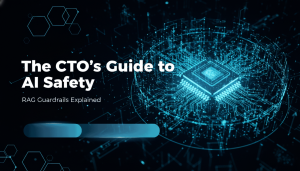AI is no longer just a concept of science fiction, it has revolutionized the entertainment industry in many ways. From content creation to audience engagement and advertising, AI is making its presence felt in almost all sectors of entertainment.
In this blog, we will explore the world of AI in entertainment. We will delve into how AI is being used in various sectors such as film production, game development, music production, and subtitle generation. We will also discuss the tools and techniques that are powering AI in entertainment such as creative scriptwriting tools and post-production tools. Furthermore, we will talk about future prospects of AI in entertainment industry including predictive analytics for future trends. Finally, we will highlight how AI is enhancing user experience and personalization in entertainment with an emphasis on challenges and opportunities ahead.
The Advent of AI in Entertainment
Artificial intelligence (AI) has made a significant impact on the entertainment industry, revolutionizing content creation and audience engagement. From film production to game development and music production, AI technologies like machine learning and natural language processing have transformed the way entertainment content is created and consumed. AI has enabled personalized customer experiences and targeted marketing campaigns, catering to the specific needs of different audience categories.
Moreover, the integration of AI has led to the development of immersive experiences like virtual reality and augmented reality, taking entertainment to new heights. The bottom line is that AI has become an indispensable tool for production companies, putting a lot of pressure on human writers while also providing new opportunities for user-generated content. The advent of AI in entertainment has truly put the industry at the forefront of innovation and technological advancements.
A Brief History of AI in Media and Entertainment
The early days of computer-generated graphics and visual effects marked the beginning of AI’s presence in media and entertainment. Since then, AI has evolved to encompass applications like natural language processing, deep learning networks, and generative AI.
Entertainment companies have harnessed the power of AI to automate tasks, enhance content creation, and improve the consumer experience. Moreover, AI has played a significant role in advancing technologies such as virtual reality, augmented reality, and real-time animation in the entertainment sector. With the rise of big data and social media, AI has become an indispensable tool for content creators and marketers in the industry.
Key Uses of AI in the Entertainment Industry
The entertainment industry is leveraging artificial intelligence (AI) in multiple ways to revolutionize itself. AI is being used to create high-quality content, personalize user experiences, and optimize marketing campaigns. Automation and AI algorithms are streamlining processes and reducing production costs for entertainment companies.
The use of AI enables the creation of realistic visual effects, animation, and virtual characters for movies and video games. AI-powered recommendation systems analyze user preferences to provide personalized content suggestions. Natural language processing (NLP) techniques help analyze sentiments and trends in social media conversations, allowing entertainment companies to better understand audience preferences.
Content Creation and AI
In the realm of entertainment, AI has revolutionized content creation by automating various tasks such as scriptwriting, video editing, and sound design. By harnessing the power of artificial intelligence, content creators can rely on AI-powered tools to generate music, create visual effects, and enhance overall production quality.
Machine learning algorithms analyze vast datasets, identifying patterns and generating valuable insights that contribute to storytelling and content development.
Additionally, AI-based platforms assist in identifying and eliminating biases in media content, ensuring fairness and inclusivity. With AI’s involvement, content creation experiences faster production turnaround times and reduced reliance on human resources.
Audience Engagement with AI
AI technologies have revolutionized audience engagement in the entertainment industry. With personalized recommendations, interactive storytelling, and immersive experiences, AI enhances the overall entertainment experience.
Chatbots and virtual assistants powered by AI provide real-time assistance and enhance customer engagement. AI algorithms analyze user behavior and preferences to deliver customized content and targeted advertisements.
Sentiment analysis helps entertainment companies gauge audience reactions and adapt their content strategy accordingly.
Additionally, AI enables social media platforms to detect and combat the spread of misinformation and fake news. The integration of AI has had a significant impact on audience engagement in the entertainment industry.
Boosting Advertising with AI
AI-driven advertising platforms utilize advanced algorithms to optimize ad placements, targeting, and bidding strategies, ultimately maximizing return on investment (ROI).
These platforms leverage AI-powered analytics to analyze vast amounts of consumer data, enabling advertisers to create personalized and relevant advertisements that resonate with their target audience.
In addition to enhancing ad targeting, AI also plays a crucial role in ad content creation. By employing AI-driven tools, marketers can generate high-quality creatives and optimize copywriting to capture attention and drive engagement.
Moreover, AI-powered recommendation engines assist advertisers in identifying potential customers and delivering tailored marketing messages for improved conversion rates.
AI’s Role in Different Entertainment Sectors
AI has made significant impacts across various entertainment sectors. In film production, it revolutionizes the industry by enabling realistic visual effects, virtual characters, and automated post-production processes.
Game development harnesses AI to create intelligent non-player characters, optimize gameplay, and enhance player experiences.
AI has transformed music production with algorithms capable of composing music, generating lyrics, and assisting in audio mixing.
Content creators can leverage AI-powered tools and platforms to create high-quality visual content for television and streaming platforms using big data.
The media industry benefits from AI tools for tasks like automated transcription, text-to-speech conversion, and natural language understanding.
Transformation in Film Production
AI has revolutionized film production across various fronts. It is capable of creating realistic visual effects, automating post-production processes, and enhancing storytelling.
Deep learning networks analyze vast video datasets to generate new visuals and special effects.
Additionally, AI-powered software automates tasks like color correction, sound editing, and video stabilization, reducing production time and costs. Virtual production techniques enabled by AI allow filmmakers to create virtual sets and characters, minimizing the need for physical production environments.
Furthermore, AI algorithms analyze audience preferences and behavior to inform decisions about casting, marketing, and distribution strategies.
Revolution in Game Development
AI has revolutionized game development by introducing intelligent non-player characters (NPCs) that exhibit realistic behaviors and adaptive gameplay. By leveraging machine learning algorithms, developers can analyze player behavior and preferences to create personalized gaming experiences.
Additionally, AI-powered procedural generation techniques are utilized to construct dynamic and ever-changing game worlds. Natural language processing (NLP) further enhances the gaming experience by enabling voice recognition and interactive storytelling.
Moreover, AI algorithms optimize game performance, graphics rendering, and resource allocation, ultimately enriching the overall gaming experience.
Changes in Music Production

AI is revolutionizing music production by analyzing extensive music datasets to generate melodies, harmonies, and lyrics. It also enhances the overall quality of music through AI-powered tools for audio mixing, mastering, and sound design.
Machine learning algorithms analyze music consumption patterns, predicting audience preferences and identifying trends. Musicians have access to virtual instruments and AI-powered plugins that offer creative possibilities.
Furthermore, AI is bridging the gap between music creation and consumption, enabling artists to connect with fans through personalized experiences. The significant impact of AI on the industry is evident in the changes it brings to music production.
AI’s Impact on Subtitle Generation
Subtitle generation has been significantly impacted by artificial intelligence (AI). With AI-powered algorithms, automated subtitle generation has become more accessible for the hearing-impaired, enhancing inclusivity.
Moreover, AI can accurately generate subtitles in multiple languages, saving time and resources for content creators. The use of AI-powered speech recognition contributes to improved subtitle accuracy, reducing transcription errors.
Additionally, AI enables real-time subtitle generation, enhancing the viewing experience for live events. The automatic synchronization of subtitles with video content using AI further improves the overall user experience.
Tools and Techniques Powering AI in Entertainment
Machine learning algorithms harness big data to provide valuable insights for entertainment companies. Deep learning networks empower AI to identify patterns and create high-quality visual effects.
Natural language processing (NLP) techniques enable sentiment analysis in marketing campaigns. AI-driven automation streamlines content creation and distribution processes within the entertainment industry.
Virtual reality (VR) and augmented reality (AR) technologies leverage AI to craft immersive experiences.
From analyzing data to creating special effects, AI is at the forefront of revolutionizing the entertainment industry. Its impact can be seen across various sectors, from movie production to gaming and broadcasting.
AI Tools for Creative Scriptwriting and Storytelling
AI algorithms in the entertainment industry are revolutionizing creative scriptwriting and storytelling. They offer invaluable assistance to scriptwriters by generating plot ideas and suggesting character development.
Additionally, NLP techniques analyze audience preferences to tailor scripts, resulting in improved engagement. AI-powered storyboarding tools enable visualizing scenes and enhancing the storytelling process.
Moreover, sentiment analysis tools powered by AI provide insights into audience reactions to storylines, allowing for better understanding and adjustments.
Lastly, collaborative AI platforms facilitate creative collaboration among writers and content creators, making the process more efficient and effective. The integration of AI tools in scriptwriting and storytelling has a significant impact on the entertainment industry, paving the way for innovative and exciting narratives.
Post-Production Tools Leveraging AI
Automating tedious post-production tasks, AI-powered video editing tools save time and effort in the entertainment industry. These tools also enhance the cinematic experience for viewers by generating visually stunning effects through AI algorithms.
Furthermore, AI algorithms analyze video footage, assisting in color grading and enhancing image quality. Automated video captioning powered by AI improves accessibility and SEO for media content.
Additionally, AI-based noise reduction algorithms enhance audio quality during post-production. In conclusion, post-production tools leveraging AI have significantly impacted the industry by streamlining workflows and improving the overall quality of media content.
Animation and Visual Effects with AI
AI algorithms have revolutionized character animation and facial expressions in animated films, creating a new level of realism. The use of deep learning techniques automates the process of developing complex visual effects, saving time and resources.
Motion capture data can now be analyzed using AI-powered tools, streamlining the animation process. Real-time rendering with AI accelerates the production of high-quality animated content.
Additionally, AI-driven generative algorithms assist in generating unique and creative animation styles, pushing the boundaries of imagination in the industry.
Future Prospects of AI in Entertainment Industry
AI in the entertainment industry holds immense potential for revolutionizing the way content is created, marketed, and consumed. With AI-powered predictive analytics, it becomes possible to forecast future trends in audience preferences and content consumption. This allows content creators, such as production companies and broadcasters, to stay at the forefront of the industry and tailor their offerings accordingly.
Additionally, AI algorithms play a significant role in optimizing marketing strategies by analyzing consumer behavior and preferences, ensuring that content reaches the right audience category ratings. The integration of AI with virtual assistants and chatbots enhances customer experience and engagement, making it more interactive and personalized.
AI-enabled recommendation systems further take personalization to a new level by providing individual users with content recommendations tailored to their interests. Furthermore, AI advancements in voice recognition and natural language processing significantly improve user interactions with entertainment platforms, making the overall experience more seamless and intuitive.
Predictive Analytics for Future Trends
AI, at the forefront of technological advancements in the entertainment industry, leverages predictive analytics to forecast future trends. By analyzing viewer preferences and behaviors, AI can assist filmmakers and studios in making data-driven decisions on which projects to pursue.
Moreover, AI-powered recommendation engines personalize content to cater to individual viewers, enhancing their experience. In addition, automation of repetitive tasks by AI frees up time for creative work. As AI technology continues to evolve, it holds the potential to transform the entire entertainment industry.
Challenges and Opportunities Ahead
The implementation of AI in entertainment has opened up a world of new opportunities in personalization and data-driven decision making. From music to film and gaming, AI is making significant strides in various areas of the industry.
However, along with these advancements come challenges such as privacy concerns and job displacement. While AI can streamline processes and improve efficiency, it cannot completely replace the role of human creativity and control.
Therefore, collaboration between humans and AI is essential for innovative and successful projects in the entertainment industry.
AI User Experience and Personalization in Entertainment
AI in entertainment is revolutionizing the industry by enhancing user experience and personalization. AI-driven chatbots provide real-time assistance, improving customer support. The use of AI algorithms enables the personalization of user interfaces, increasing user engagement and satisfaction.
AI-powered content curation tailors entertainment offerings according to individual preferences, resulting in more relevant recommendations. Sentiment analysis using AI helps gauge audience reactions, allowing content creators to adapt accordingly.
Additionally, AI automates repetitive tasks and simplifies navigation, further enhancing the user experience. Through these advancements, AI is significantly impacting the way we consume entertainment.
How is AI Enhancing User Experience and Personalization in Entertainment?
AI is revolutionizing user experience and personalization in the entertainment industry. By analyzing user data, machine learning algorithms can predict preferences and provide personalized recommendations. AI-powered chatbots offer interactive experiences, while AI enhances special effects and animation in films and TV shows.
Conclusion
In conclusion, AI has revolutionized the entertainment industry in various ways. From content creation to audience engagement and advertising, AI has become an integral part of the entertainment ecosystem. It has transformed film production, game development, music production, and even subtitle generation.
With tools and techniques powered by AI, creative scriptwriting, storytelling, post-production, animation, and visual effects have reached new heights of innovation and efficiency. The future prospects of AI in entertainment are promising, with predictive analytics enabling better decision-making and personalized experiences for users.
However, there are also challenges and opportunities that lie ahead. As AI continues to evolve, it is crucial for the industry to adapt and harness its potential for a truly immersive and personalized entertainment experience.



